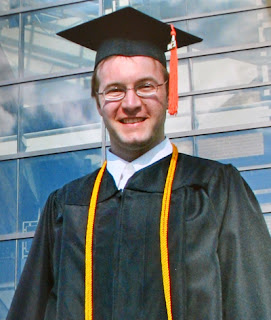Employee Spotlight: Julie Schaffer
How long have you
worked here?
Eight-and-a-half years working and did her internship here
prior to that.
What made you decide
to work here?
When I was in grad school and looking for a place to do an internship,
three different complete strangers in the same week all talked to me about
Angela Hospice. So I thought, I’ve gotta go there and see it. I called the spiritual
care supervisor at the time and came in and met with her. It went really well
and she said we’d love to have you do your internship here; so that’s how I
ended up here for that.
Then I worked for another hospice that closed and merged
with Angela Hospice. We had the opportunity to interview for jobs here and
there was a job in the Spiritual Care Department available then, so that’s how
I came back.
What’s a typical day
like for you?
As far as patient care, there’s never anything typical; it’s
always different. (laughs) But in the morning I always go on the computer and
see what new patients have been admitted that would like spiritual care. Then I
reach out to the patients or their families and do an initial assessment; talk
to them; find out if they would like it; and if they would, what would probably
be the best fit for them. Then I make assignments based on their needs and
desires, and assign them either to Kathy, to myself, to one of our volunteers,
or to somebody in the community if that’s what they would like (their own
parish, their own church). Then I get that going and do all the computer work
for that. I go out and do visits, and see patients. Then I usually spend the
afternoon documenting that. Also, I manage the spiritual care volunteers so
there’s time that I spend talking with them about their visits, supervising
them, documenting their visits, that sort of thing.
What is your favorite
part about working at Angela Hospice?
It would definitely be the times that I feel like I could
make a difference or perhaps I did make a difference for patients and help them
reach their goals.
 |
| Julie in front of her favorite fountain on the grounds. |
It probably has to do with just that, with helping the
patients reach their goal. One example that came to mind when I thought about
that question…it was really significant, at least for me. There was a patient
and she was mentally very alert but could not communicate verbally at all, and
was having trouble expressing herself because of that, and was very restless.
So her daughter thought maybe the restlessness was from spiritual distress. So
she asked if I would just come by and visit and see what we might be able to do.
I was at the visit and it didn’t feel to me like it was real
substantive because she couldn’t communicate at all, so I offered some prayer
and just spent some time with her. But then before I left…this is important,
she was wearing a large cross necklace. It was maybe three or four inches big
and very wide. Before I left I just said to her, “You know death is the next
great adventure.” Then I thought, “Why in the world did I say that?” I’ve never
said those words before, they mean nothing to me, I didn’t expect to say it. And
all of a sudden she went from being kind of agitated and restless to getting
this huge smile on her face, and she grabbed the cross necklace. She just
smiled and had this huge sigh. Then she was very peaceful and she closed her
eyes and I could kind of just tell the visit was done.
I went back out in the kitchen and I told her daughter
exactly what had happened and her daughter said, “Oh my gosh, I know exactly
what happened.” She said that her dad, who had died several years ago, always
used to say to her, “Don’t be afraid to die because death is the next great
adventure.” And she said the reason she grabbed the cross was because his ashes
were in that cross. It was so affirming to me because what I always do before a
visit is I say a prayer and do a little meditation to try to just allow
whatever words would be comforting to that person to flow through me. It was so
affirming because to me that’s exactly what happened. Words just came to me
that I never would have spoken otherwise and it gave her the peace that she
needed. She was just very peaceful after that and not afraid of dying. When
things like that happen, those are my best memories. I kind of always leave
those visits going, “This is why I do this work.”




Comments
Post a Comment